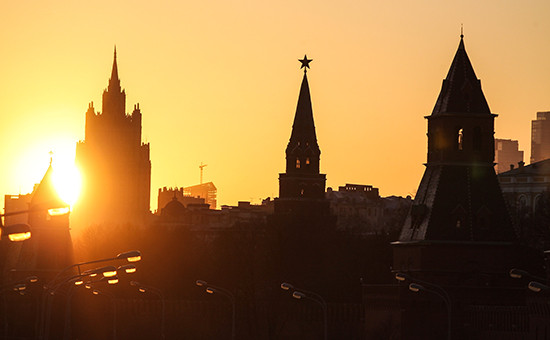
Photo: Yekaterina Kuzmina / RBC
A possible strengthening of the anti-Russian sanctions of the” Big Seven “will not go unanswered Moscow. The corresponding statement was made by the press secretary of the president of Russia Dmitry Peskov, Interfax reported.
«Russia has repeatedly underlined the sanctions deeds their commitment to the principle of reciprocity. Of course, on a reciprocal basis any sanctions steps will not be left unanswered, “- said Peskov, thus commenting on the words of Vice President Joe Biden’s intention to strengthen the G7 restrictive measures against Russia.
A spokesman for Vladimir Putin also responded to the data of the Italian agency Ansa, according to which the Russian leader’s visit to Italy raised concerns the US administration. “There are more questions that concern the relations between Moscow and Rome,” – said Peskov.
As told German Chancellor Angela Merkel, the country’s “Seven” agreed to strengthen sanctions against Russia in case of escalation of the conflict in the east of Ukraine. The readiness of G7 leaders to introduce additional measures as US President Barack Obama. The Heads of State emphasized that the sanctions should act before the full implementation of the agreements Minsk.
Immediately after the summit, Peskov said that the Kremlin had not heard of new abstracts from participants “Seven.” “We paid attention to the next statement on the sanctions issues. This is not some new theses. Among the participants of this meeting, there are certain nuances in approach, “- he said.
June 10 the head of the presidential administration Sergei Ivanov said that in response to the possible tightening of sanctions against Moscow by the West it can extend kontrsanktsii.
The question of the extension of the sectoral sanctions in late July 2014, will be discussed at the EU summit in late June. June 3 the newspaper The Wall Street Journal reported that the meeting may be decided to extend the restrictive measures for six months.
The sanctions against Russia were introduced after the annexation of the Crimea, which in the West is considered illegal. They were tightened after the United States and the European Union accused Moscow of military support of militias in the east of Ukraine. Russian authorities have repeatedly denied the allegations.
No comments:
Post a Comment